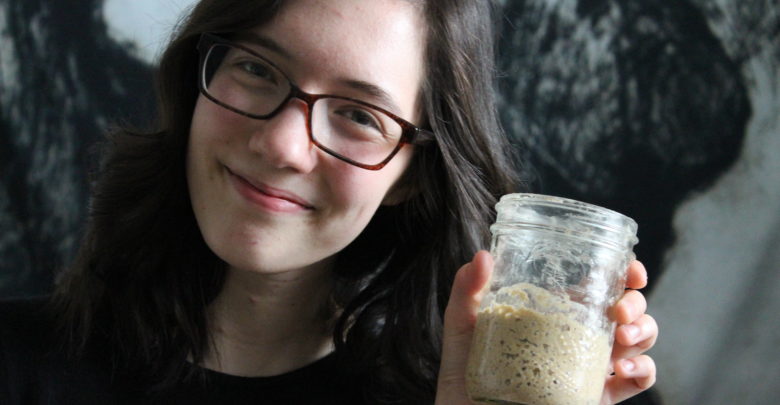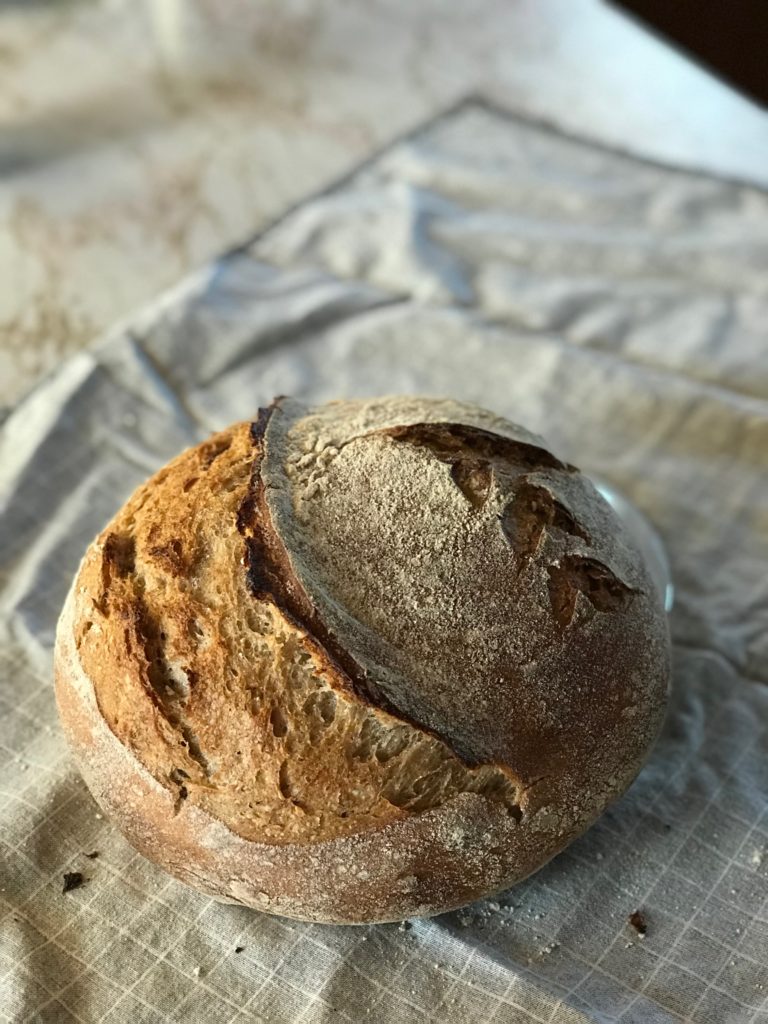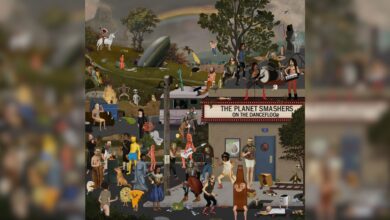PhD candidate discovers what sourdough can teach us about living in community
To Emily Hoven, sourdough fermentation points to the way people relate with each other.
 Supplied
SuppliedFew trends have gripped our collective consciousness more dramatically over the course of the pandemic than our obsession with sourdough.
Sourdough fermentation is a thousands year old approach to breadmaking that involves regularly mixing flour, water, and a naturally occurring cocktail of bacteria into what’s known as a “starter”. Starters have to be “fed” flour and water for several days before they can develop a bacterial culture that is stable enough to facilitate leavening and give a loaf of sourdough its distinct, sour flavour.
The practice has been steadily growing in popularity over the last few years, reaching a fever pitch at the onset of the pandemic. The move to remote work and schooling meant that we suddenly had more time to dedicate towards growing sourdough starters, and as lockdown restrictions were first put in place last spring, many grocery stores saw their shelves cleared of flour.
According to Emily Hoven, a department of English and film studies doctoral candidate, the rising interest in sourdough might also be tied to the relational nature of sourdough fermentation.
“Part of what drew people to sourdough was the way that it gets us to tune into all of these relationships that we’re connected to,” Hoven said. “I think that it’s a powerful thing to feel like, ‘I’m isolated from the humans in my life, but still there are all of these other relationships that I’m embedded in that I can take part in.’”
Although Hoven describes herself as a lifelong baker, it wasn’t until she took a literary ecologies course in graduate school that she was first challenged to think about the imperceptible ecological relationships all around us, many of which are at the heart of sourdough fermentation.
Hoven’s fascination with sourdough also came at an important time for her personally.
“I was also in a pretty deep wave of depression and just needed something to create routine in my day-to-day,” Hoven said. “Those two circumstances combined and I decided to try making sourdough, which especially in the early stages requires mixing fresh flour and water together everyday. It gave me a daily ritual to tap into.”

That was just over three years ago, but in March 2020, Hoven got to experience sourdough fermentation’s rapidly growing online subculture firsthand.
After seeing a friend jokingly tweet about regretting having thrown out a sourdough starter gifted to him, Hoven decided to do a day-by-day walkthrough on Twitter showing how to create a sourdough starter.
“Initially I thought it would just be a couple of my friends following along, but that sounded like fun to me,” Hoven said.
The Twitter thread quickly went viral, receiving thousands of interactions and even being picked up by The Washington Post.
“It was pretty fun for me to have this community on Twitter of people sending me pictures of their starter and their bread and being excited about it,” Hoven said.
Coincidentally, Hoven’s Twitter thread blew up when she was already a year and a half into a dissertation about fermentation, sourdough, and what it can teach us about how to take care of each other.
“Fermentation shifts the scale of our thinking about being in relationship with each other,” Hoven said. “It asks us to be thinking about, how do I work with these bacteria and yeasts? How do I find ways to communicate with them? How do I find ways to listen to them to be able to make something delicious together?”
“I think there’s some interesting lesson there about attunement.”
Hoven is also interested in the cultural significance of bread, the human-bacterial interactions involved in creating sourdough, and the tremendous staying power of sourdough starters — some starters date back centuries, while others can even trace their roots to Ancient Egypt.
For now, Hoven is focused on finishing her dissertation, trying her hand at flour milling, experimenting with kombucha fermentation, and possibly writing a book about her experiences with sourdough.
In the meantime, she has some simple advice for anyone interested in creating their own sourdough starter.
“The biggest tip that I always give people is that sourdough starters are really resilient,” Hoven said. “People have been baking this kind of bread for thousands of years and we can revive starters from thousands of years ago, so if you forget about yours for a week or a month, it’s going to be fine. You can bring it back to life just by starting to regularly feed it again.”




